Coffman Chair for University Distinguished Teaching Scholars
 Craig Spencer
Craig Spencer
2025-2026
Mathematics
Recent years have brought significant changes to math requirements across Kansas State University. With KBOR's new systemwide general education requirements, we've seen programs modify, and sometimes reduce, their math requirements. When Math Pathways are instituted next year, Intermediate Algebra can no longer be offered, and students not meeting certain placement measures for introductory math courses will be required to take versions with corequisite support. Furthermore, the Department of Mathematics has taken certain actions to improve retention rates. In particular, students failing the first exam in Calculus I are allowed to drop back into a special section of Precalculus, and over the summer, incoming students at risk of failing Calculus I or II are encouraged to participate in online math preparation programs over the summer. My goal is to obtain both quantitative and qualitative information on the effects of these changes and initiatives. I will accumulate and analyze data on our students' math placement measures, participation in certain math programs, and performance in math courses. Surveys and interviews will be conducted to gain an understanding of students' perceptions of our math classes, corequisite support offerings, and retention initiatives. My goal is to better understand how the Department of Mathematics can improve placement recommendations, reduce D/F/W rates in lower-division courses, and better serve the K-State community.
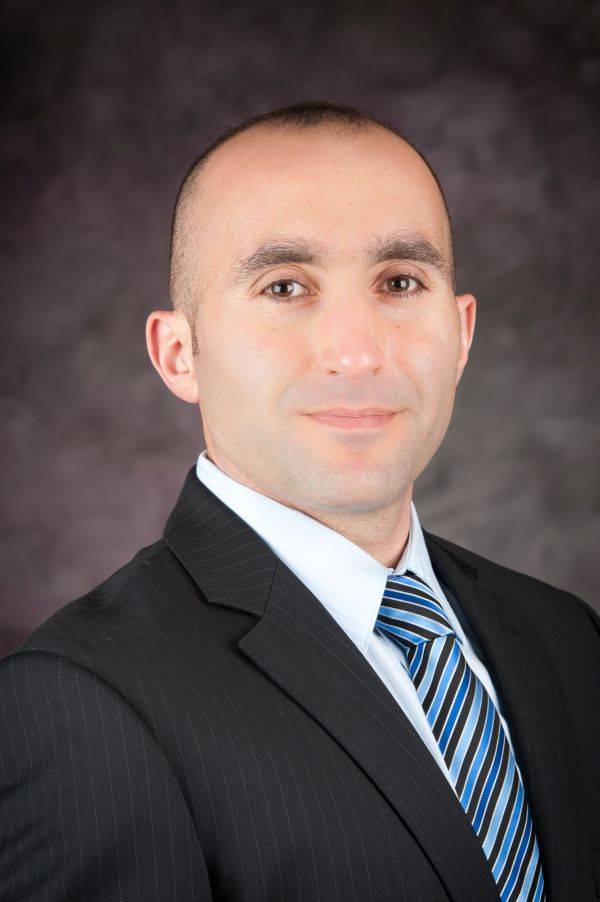 Aleksan Shanoyan
Aleksan Shanoyan
2024-2025
Agricultural Economics
The recent technological advancements in Generative Artificial Intelligence are having transformative impact on various fields including higher education. The ChatGPT and other similar tools provide users with unprecedented ability to automatically generate humanlike text of desired format, style, length, level of detail, and language used. While these technologies are seen by some as a key for unlocking new potential in education, others are raising concerns over its potential to promote academic misconduct and reduce analytical skills. Potential opportunities and challenges arising from the application of these technologies in higher education are still not well understood. Many questions remain about the differential impact of these technologies across various disciplines, curriculums, courses, learning activities, and assessment mechanisms. This presentation will share research insights on the extent to which specific KSU programs, curriculums, and courses are being affected by ChatGPT and other GAI. These insights will be useful in designing targeted programs and policies aimed at maximizing the benefits and minimizing the threats associated with the use of GAI and GPT applications across KSU programs.
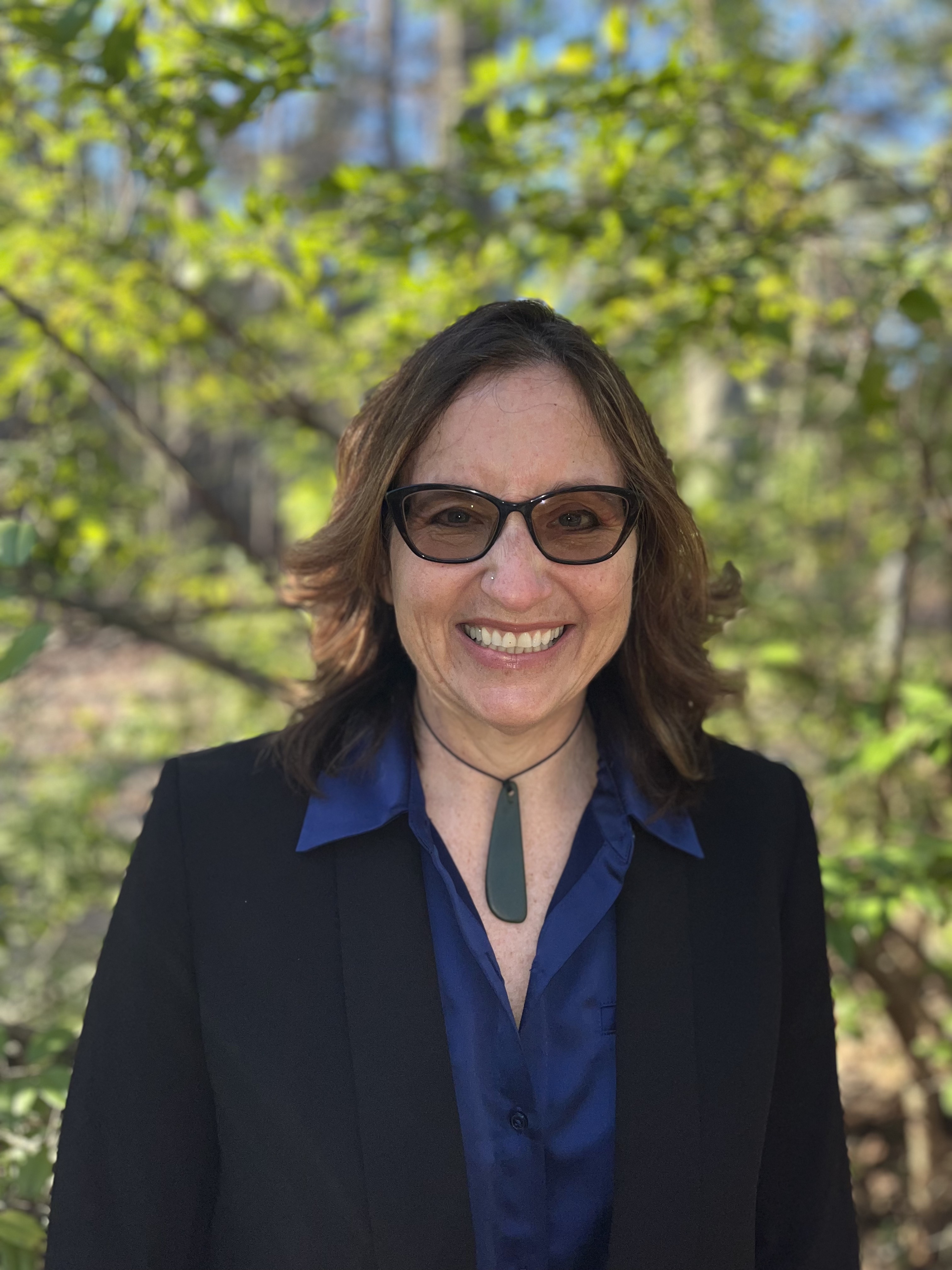 Lisa Tatonetti
Lisa Tatonetti
2023-2024
English
As a Coffman Chair, I have collaborated with campus, state, and tribal partners to develop Indigenous-focused teaching and learning resources that foster knowledge about Kansas State’s land grant histories. Particularly, this work highlights the fact that the often-celebrated “grants” from the 1862 Morrill Act rest on the seizure and transfer of Indigenous land. At the center of this project, then, is how we can meet our first-gen land grant responsibilities by teaching this story—how land once held in common by the Kaáⁿze níkashiⁿga (Kanza people), today known as the Kaw Nation, became the location and economic foundation of Kansas State. This presentation will share teaching and learning resources created in relation to the Kansas Land Treaty Project, including two videos, oral histories, and curriculum that highlights the intersections of Indigenous histories and the Kansas State land grant. Together, we’ll discuss how and why we can infuse place-based understandings into our principals and methods of teaching and concretely extend these understandings for use across the state.
 Nathaniel Birkhead
Nathaniel Birkhead
2022-2023
Political Science
Experiential learning is widely regarded as that experiential learning can be an effective technique to help engage a variety of students across learning tendencies. As such, it has been widely applied in a variety of pedagogical settings, here at K-State and elsewhere. What has not kept pace with its implementation has been the assessment of the technique’s effectiveness. While there are many studies that show the students have positive experiences with outside engagement many questions remain regarding how to make experiential learning as effective as possible. This presentation will share information about the variety of experiential learning opportunities across campus, the learning objectives from these various opportunities, and describe plans for a campus-wide set of experiments that will help faculty implement experiential learning as effectively as possible.
 Jason Bergtold
Jason Bergtold
2021-2022
Agricultural Economics
The COVID-19 pandemic was an unprecedented shock to learning, instructional delivery, and engagement across classrooms at institutions of higher education in the United States. Much research about learning during the pandemic indicated a reduction or impeded learning outcomes and instructional quality during the pandemic. Even so, many instructors and teachers rose to the challenge to transition and deliver courses online, develop innovative methods to engage students, and adopt a multitude of hybrid and blended learning formats over the course of the pandemic. These innovations should not become irrelevant when the pandemic ends but continue to enhance learning and engage students in the classroom, even with a return to predominately in-person instruction. This presentation will share research about the impact of hybrid and blended learning on student outcomes, as well as innovative ways to approach redesigning our courses as we transition back to a predominately in-person educational experience. The information provided will help instructors learn how to maintain the innovations and approaches developed and adopted during the pandemic, as well as how to design their courses with online, hybrid and blended course elements moving forward.
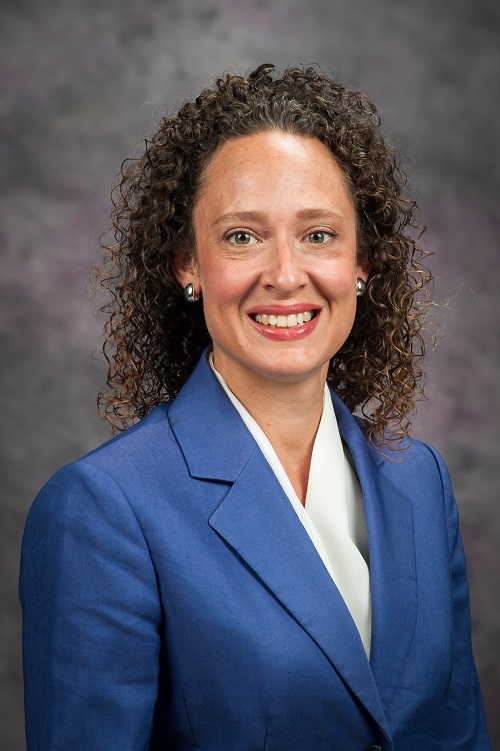 Julia Keen
Julia Keen
2020-2021
Architectural Engineering and Construction Science
Research shows that individuals spend nearly 90% of their time indoors. Since the onset of the Covid-19 pandemic in March 2020, we have altered how we think about the environment we occupy. The built environment should not only be safe but it should also contribute favorably to the intended task of the occupant. This presentation will share best practices in design of classrooms to enhance teaching and learning. This content is not only relevant to those physically teaching on campus but also to those engaged in remote delivery because the recommendations may be transferred to one’s home workspace.
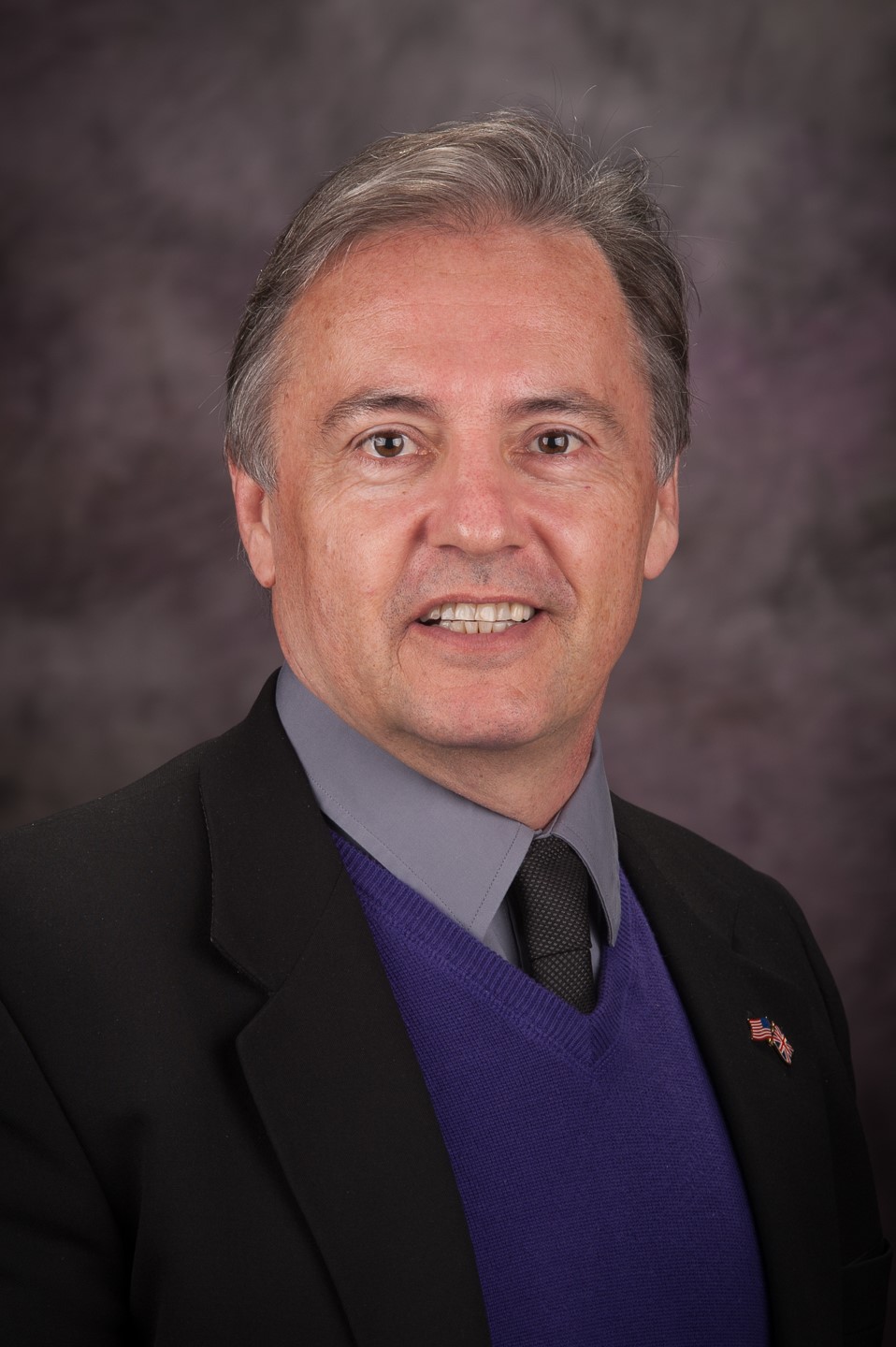 David Poole
David Poole
2019-2020
Kinesiology
At first-class universities, outstanding teaching and research go hand-in-hand. As the 2019-2020 Coffman Chair, Dr. Poole has evaluated the degree to which the latest research in effective teaching and learning practices inform and benefit K-State students in the classroom and beyond. To this end he has surveyed the efficacy and impact of our instructors after taking the Association of College and University Educators' (ACUE) course. He will identify which practices are producing the best results with K-State students and present evidence supporting that graduates of the ACUE course have improved teaching quality/ efficacy at K-State. Furthermore, Dr. Poole will identify key elements to outstanding teachers and best practices at K-State with direct relevance to maximizing teaching and learning efficacy across colleges and departments in times of Covid-19.
 Keith Hohn
Keith Hohn
2018-2019
Chemical Engineering
As Coffman Chair, Dr. Hohn studied and cataloged how faculty in professional programs — those in which a college degree is required to gain basic career entry in a specific occupational field — impart the skills their students need to succeed as professionals. He searched for commonalities between disciplines as well as differences.
 Todd Easton
Todd Easton
2017-2018
Industrial and Manufacturing Systems Engineering
In 2003, Dr. Easton created a new active learning teaching style called Lecture Based Tutoring. A conference proceeding explaining this teaching style was awarded the best paper by the American Society for Engineering Education. As the 2017-2018 Coffman Chair for University Distinguished Teaching Scholars, Easton proposed advancing undergraduate teaching and learning at Kansas State by informing and mentoring faculty in this new teaching technique.
 Patricia Ackerman
Patricia Ackerman
2016-2017
Language Arts Curriculum and Instruction
During her tenure as Coffman Chair, Ackerman facilitated university-wide dialogue about how KSU defines teaches, and assesses Critical Thinking as one of the five undergraduate student learning outcomes. Collaborating with the Teaching and Learning Center, the Faculty Exchange for Teaching Excellence, and the Office of Assessment, a Year of Critical Thinking was designated at KSU. The year began with Dr. Gerald Nosich, from the National Foundation for Critical Thinking, conducting a day-long workshop for over 200 KSU Faculty, entitled Teaching Critical Thinking to College Students within the Logic of One's Own Discipline. A series of seminars and events on the topic of critical thinking was planned throughout 2017.
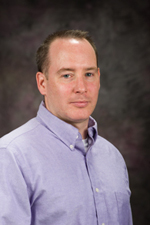 Donald Saucier
Donald Saucier
2015-2016
Psychological Sciences
As Coffman chair, Saucier will spend the next year researching how teachers' experiences of engagement and enjoyment in the classroom predict those same experiences in their students. He wants to understand if an instructor's autonomy in choosing which classes he or she teaches and the content discussed will affect engagement.
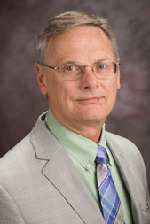 Mick Charney
Mick Charney
2014-2015
Architecture
The time-honored lecture format, more than any other teaching format, remains the signature pedagogy of so many large introductory courses in so many disciplines just exactly because it has been the most efficient means by which to deliver foundational material. And yet, it has been roundly condemned for teaching students what to learn but not how to learn. Therein lays the rub.
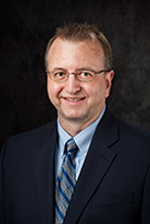 John Fliter
John Fliter
2013-2014
Political Science
Simulations, games, and role-playing exercises involve the creation of simulated or hypothetical scenarios that provide participants with life-like problem solving experiences. These activities promote the application of knowledge, sharpen critical thinking skills, and develop in students a deeper understanding of complex decision making processes. Active learning assignments also fit nicely into the K-State 2025 plan objectives to enhance the undergraduate learning experience by providing an engaged, participatory culture of learning.
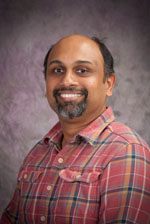 Sanjay Rebello
Sanjay Rebello
2012-2013
Physics
To develop a deeper understanding of the science of learning, Rebello has collaborated with faculty across departments and institutions to continue his scholarship of how people learn and how they transfer their learning from one context to another to solve problems. Under the auspices of the campus-wide efforts related to the Year of the Brain, he is co-facilitating a study group to discuss the issue of memory and how it pertains to our learning and teaching. He will continue to participate in ongoing efforts to foster discipline-based educational research and evidence-based teaching at K-State.
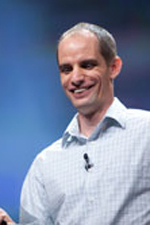 Michael Wesch
Michael Wesch
2011-2012
Sociology, Anthropology and Social Work
To develop new teaching methods that inspire and nurture new media literacy, Wesch led six faculty members in the creation and application of new media tools and activities in their teaching. All fellows in the program shared their progress, successes, and failures through an open blog (edparkour.com) and other new media methods (tweets, videos, wikis, etc.) in such a way as to invite other teaching scholars across the campus and around the world to help us achieve our goal of improving new media literacy.
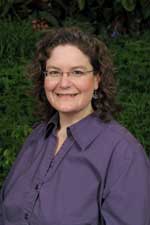 Kimberly Williams
Kimberly Williams
2010-2011
Horticulture, Forestry, and Recreation Resources
Conducting the Scholarship of Teaching and Learning (SoTL) is an excellent way for teaching faculty in any discipline to evaluate the effectiveness of their teaching activities on student learning and to elevate their classroom innovations to scholarship. Williams conducted a university-wide survey to assess how SoTL is valued across the various cultures of K-State's Colleges; this effort contributed to understanding of how to motivate wider practice of teaching scholarship across disciplines. She also presented eleven programs to a variety of university and graduate student groups entitled 'How to Implement SoTL in Your Classroom,' which she continues to this day.
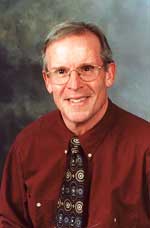 Douglas Benson
Douglas Benson
2009-2010
Modern Languages
Summary Report
The project supported the undergraduate diversity curriculum at K-State by redesigning and enhancing the Tilford Web Site with teaching resources and other materials, to be used by faculty and staff in their courses and in other contexts. A team of technological experts and diversity experts worked with me to address issues such as the educational benefits of a diverse learning environment, educational strategies that are inclusive of different cultural perspectives, and suggestions for multicultural course transformation. The site is available at tilford.ksu.edu.
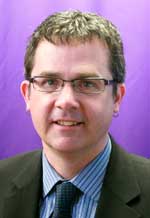 Gregory Eiselein
Gregory Eiselein
2008-2009
English
Summary Report
To help new students with the transition to college-level learning, Eiselein is developing a First-Year Seminar program. With their small size and co-curricular activities, these seminars emphasize active learning and the critical thinking and communication skills needed to succeed in college. Outstanding faculty members from across the University teach these special freshman-only versions of regular academic classes.
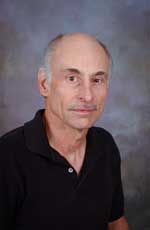 Christopher Sorensen
Christopher Sorensen
2007-2008
Physics
Summary Report
To stem the ever increasing specialization of knowledge, Sorensen will develop interdisciplinary courses necessary for successful careers in science and engineering. He will also attempt to create courses that will bridge the great divide between the “two cultures”, science and the liberal arts.
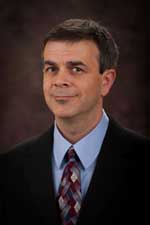 Roger McHaney
Roger McHaney
2006-2007
Management
Summary Report
The 2006-7 Coffman project focuses on the colletion of distance learning techniques used across campus and the compilation of online educational resources to make the transition to distance learning easier for faculty. The project will facilitate communication within the K-State distance learning community and advance undergraduate teaching and distance learning.
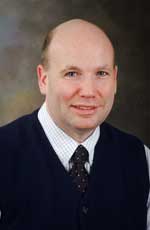 Michael Boland
Michael Boland
2005-2006
Agricultural Economics
Summary Report
Many universities offer a program such as Preparing Future Faculty or a certificate in college teaching which enable graduate students to take several courses in college teaching and participate in other teaching experiences. Boland studied these programs and made a recommendation to implement a certificate program at K-State.
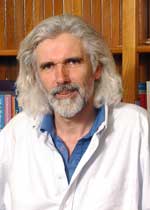 Harald Prins
Harald Prins
2004-2005
Sociology, Anthropology and Social Work
Summary Report
Dr. Prins developed an experimental field methods course in digital ethnography, explored how to apply theoretical and practical media knowledge to classroom teaching strategies, and how to assist students in developing critical skills of visual analysis essential in the age of globalization.
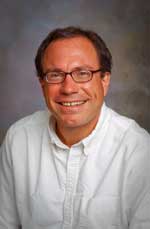 Andrew Barkley
Andrew Barkley
2003-2004
Agricultural Economics
Summary Report
Dr. Barkley organizaed a university-wide retreat and recognition banquet held in January 2004 at Rock Springs Conference Center. About 130 K-State faculty members registered for the day's events. More than fifty faculty and staff presented and discussed strategies for innovative and successful teaching.
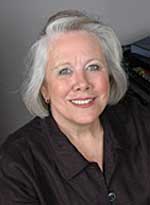 Jana Fallin
Jana Fallin
2002-2003
Music
Summary Report
With the cooperation of many fellow faculty members, Dr. Fallin created a DVD, Engaging the Learner. Now available to new teaching faculty, the DVD presents helpful hints and example vignettes. She also initiated action-oriented gatherings of the University Distinguished Teaching Scholars.
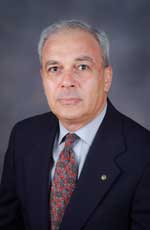 Medhat Morcos
Medhat Morcos
2001-2002
Electrical and Computer Engineering
Summary Report
Believing that distance learning offers great potential to improve access to and enhance the quality of academic instruction, Dr. Morcos organized ten university-wide lectures on related topics and made the presentation slides available on a website.
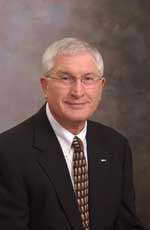 Stephen Thien
Stephen Thien
2000-2001
Agronomy
Summary Report
Thien, Steve J. 2003. A Teaching-Learning Trinity: Foundation to My Teaching Philosophy. J. Nat. Resour. Life Sci. Educ., Vol. 32, pp 87-92. (journal’s site: http://www.JNRLSE.org article's site: http://www.jnrlse.org/view/2003/e02-27.pdf
This work represents a soil scientist’s reflection (40 years of teaching) on the connections between teaching and learning and portrays the foundation to my teaching philosophy on how an understanding of teaching and learning processes can increase teaching effectiveness and student learning. From working definitions of teaching and learning, I describe their interaction, not as a duality, but a trinity; three processes linked as one: learning to learn, learning to teach, and teaching to learn. I describe how lifelong learners can be developed through understanding and successfully applying the processes within each segment of the teaching-learning trinity. I offer these comments in hopes they will inspire readers to develop their own journey toward mastering the teaching and learning processes in ways that improve teaching and learning outcomes.
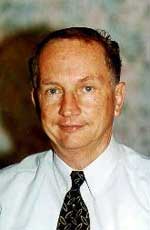 Larry Williams
Larry Williams
1999-2000
Biology
Summary Report
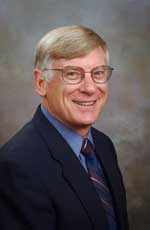 Bryan Schurle
Bryan Schurle
1998-1999
Agricultural Economics
Summary Report
Dr. Schurle organized three university-wide forums and workshops in the area of distance education and technology. His intent was to stimulate thought and debate, to "move the debate past 'it is not going to work/it is going to work' to 'where will it work best?'"
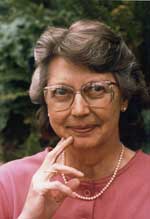 Ann Stalheim-Smith
Ann Stalheim-Smith
1997-1998
Biology
Summary Report
Seven Swap Sessions and a major workshop gave faculty members opportunities to share and discover ideas on teaching and learning, and to form informal networks of support with faculty across campus. The Faculty Exchange for Teaching Excellence, a direct outgrowth of Dr. Stalheim-Smith's efforts, continues to promote these activities.
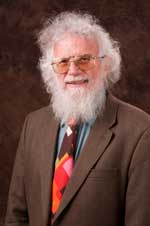 Dean Zollman
Dean Zollman
1996-1997
Physics
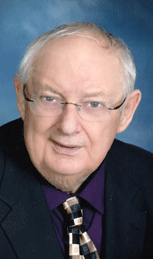 Clifton E. Meloan
Clifton E. Meloan
1995-1996
Chemistry